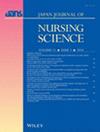Incidence and risk factors for nursing-related intraoperative incidents: A 5-year retrospective study at a Japanese tertiary care hospital
Abstract
Aim
Nursing-related intraoperative incidents, such as specimen loss and retained surgical items, pose serious risks to patient safety. These events may be influenced by surgical complexity, team structure, and nursing experience. However, data on the specific impact of these factors, particularly in Japan, remain limited. This study aimed to determine the incidence of nursing-related intraoperative incidents and identify clinical and procedural factors associated with their occurrence.
Methods
We conducted a retrospective observational study of all surgeries performed at a tertiary care hospital between April 1, 2018, and March 31, 2023. Data were extracted from anesthetic records, perioperative nursing notes, and an electronic incident reporting system. The primary outcome was the incidence of nursing-related intraoperative incidents. Secondary outcomes included associations with surgical specialty, instrument delivery personnel (nurse vs. physician), duration of surgery (<2 vs. ≥2 h), timing of surgery (daytime vs. night shift), surgical approach (endoscopic vs. non-endoscopic), and nurse experience (<6 vs. ≥6 years). Logistic regression was used for statistical analysis.
Results
Of 37,265 surgical cases, 85 cases (0.23%) of nursing-related intraoperative incidents were identified. Incident rates were highest in neurosurgery and emergency department surgery. Univariate analysis identified instrument delivery personnel (nurse), longer duration of surgery, night shift surgery, and limited nursing experience as associated factors. In multivariate analysis, limited nursing experience (odds ratio: 1.810) and longer duration of surgery (odds ratio: 4.008) remained significant predictors.
Conclusions
Nursing-related intraoperative incidents, though rare, were more likely to occur during longer surgeries and when performed by less experienced nurses.

 求助内容:
求助内容: 应助结果提醒方式:
应助结果提醒方式:


